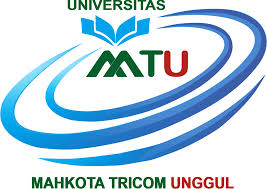Utilization of Artificial Intelligence (AI) to Support the Implementation of Demolition in the Indonesian Air Force
DOI:
https://doi.org/10.55927/fjas.v4i7.238Keywords:
Artificial Intelligence, Demolition, Indonesian Air Force, Effectiveness, EfficiencyAbstract
This research employs a qualitative approach, utilizing in-depth interviews, observations, and documentation studies involving TNI AU personnel, along with data analysis from various documentary sources. The qualitative method is used to gain in-depth insights from TNI AU personnel and military technology experts on AI implementation in demolition operations through observation and documentation studies. Primary data is collected through interviews, observations, and document reviews, while secondary data is gathered from official documents, technical reports, and related publications. The findings indicate that AI usage in demolition activities within TNI AU has improved accuracy in detecting and identifying explosive threats. This research offers several recommendations to address challenges and optimize AI use in demolition activities within TNI AU.
References
Aldosari, S. A. M. (2020). The Future of Higher Education in the Light of Artificial Intelligence Transformations. International Journal of Higher Education, 9(3), 145. https://doi.org/10.5430/ijhe.v9n3p145.
Arifdarma, I. (2023). The Influence of Chat GPT Technology on the World of Education: Potential and Challenges. 4(1).
Budiharto, Widodo et al. (2014). Artificial Intelligence: Concept and Application, Andi Publisher, Yogyakarta.
Chiu, T. K. F., Xia, Q., Zhou, X., Chai, C. S., & Cheng, M. (2023). Systematic literature review on opportunities, challenges, and future research recommendations of artificial intelligence in education. Computers and Education: Artificial Intelligence, 4, 100118. https://doi.org/10.1016/j.caeai.2022.100118.
Corrigan, J. (2017, November 3). Three-Star General Wants AI in Every New Weapon System. Retrieved from Defense One: https://www.defenseone.com/technology/2017/11/three-star-general-wants- artificial-intelligence-every-new-weapon-system/142239.
Cotton, D. R. E., Cotton, P. A., & Shipway, J. R. (2023). Chatting and cheating: Ensuring academic integrity in the era of ChatGPT. Innovations in Education and Teaching International, 1–12. https://doi.org/10.1080/14703297.2023.2190148.
Dehouche, N. (2021). Plagiarism in the age of massive Generative Pre-trained Transformers (GPT-3). Ethics in Science and Environmental Politics, 21, 17–23. https://doi.org/10.3354/esep00195.
Hafeez, A., Asghar, W., Rafique, M. M., Iqbal, S. M., & Butt, A. R. (2012). GPU-based real-time detection and analysis of biological targets using solid-state nanopores. Medical and Biological Engineering and Computing, 50(6). https://doi.org/10.1007/s11517-012-0893-9.
Huang, X., Yang, F., Zheng, J., Feng, C., & Zhang, L. (2023). Personalized human resource management via HR analytics and artificial intelligence: Theory and implications. Asia Pacific Management Review, 28(4). https://doi.org/10.1016/j.apmrv.2023.04.004.
Lewis, A. (2022). Multimodal large language models for inclusive collaboration learning tasks. Proceedings of the 2022 Conference of the North American Chapter of the Association for Computational Linguistics: Human Language Technologies: Student Research Workshop, 202–210. https://doi.org/10.18653/v1/2022.naacl- SRW.26.
Li, C., & Xing, W. (2021). Natural Language Generation Using Deep Learning to Support MOOC Learners. International Journal of Artificial Intelligence in Education, 31(2), 186–214. https://doi.org/10.1007/s40593- 020-00235-x.
Luckin, R., & Holmes, W. (2016). Intelligence Unleashed: An argument for AI in Education. In the UCL Knowledge Lab: London, UK. [Report].
Macri, G. (2016, September 13). NSA Chief Says Without Artificial Intelligence, Cyber ‘Is a Losing Strategy’.
Madrid, R., Williams, B., & Holland, J. (1992). Artificial Intelligence for Explosive Ordnance Disposal System (AI-EOD). Proceedings of the International Joint Conference on Neural Networks, 1. https://doi.org/10.1109/IJCNN.1992.287182.
Meerveld, H. W., Lindelauf, R. H. A., Postma, E. O., & Postma, M. (2023). The irresponsibility of not using AI in the military. Ethics and Information Technology, 25(1). https://doi.org/10.1007/s10676-023-09683-0.
Miles, M. B., & Huberman, A. M. (1992). Qualitative data analysis: A resource book on new methods. Publisher of the University of Indonesia. https://opac.perpusnas.go.id/DetailOpac.aspx?id=298242.
Marimin. (2009). Artificial Intelligence Engineering and Applications. . Bogor: IPB Press.
Organisation for Economic Co-operation and Development (OECD). (2016). OECD Science, Technology and Innovation Outlook 2016.
Roth, M. (2019, February 22). Artificial Intelligence in the Military – An Overview of Capabilities.
Stracqualursi, E., Rosato, A., Di Lorenzo, G., Panella, M., & Araneo, R. (2023). Systematic review of energy theft practices and autonomous detection through artificial intelligence methods. In Renewable and Sustainable Energy Reviews (Vol. 184). https://doi.org/10.1016/j.rser.2023.113544.
Svenmarck, Peter et al. (2018). Possibilities and Challenges for Artificial Intelligence in Military Applications. NATO Big Data and Artificial Intelligence for Military Decision-Making Specialists' Meeting. NATO Science and Technology Organisation.
Vincent, L., & Van Der, V. (2020). Trustworthy artificial intelligence (AI) in education: Promises and challenges (OECD Education Working Papers 218; OECD Education Working Papers, Vol. 218). https://doi.org/10.1787/a6c90fa9-en.
Weisgerber, M. (2017, September 19). Defense Firms to Air Force: Want Your Planes' Data? Pay Up.
Westera, W., Prada, R., Mascarenhas, S., Santos, P. A., Dias, J., Guimarães, M., Georgiadis, K., Nyamsuren, E., Bahreini, K., Yumak, Z., Christyowidiasmoro, C., Dascalu, M., Gutu-Robu, G., & Ruseti, S. (2020). Artificial intelligence moving serious gaming: Presenting reusable game AI components. Education and Information Technologies, 25(1), 351–380. https://doi.org/10.1007/s10639-019-09968-2.
Work, R. O., & Brimley, S. (2014). 20YY: Preparing for War in the Robotic Age. Washington D.C.: Center for a New American Security. ISBN. 1935087800.
Zhang, Y., Pei, H., Zhen, S., Li, Q., & Liang, F. (2023). Chat Generative Pre-Trained Transformer (ChatGPT) usage in healthcare. Gastroenterology & Endoscopy, 1(3), 139–143. https://doi.org/10.1016/j.gande.2023.07.002.
Zhao, W., & Bin Osman, L. H. (2023). A Systematic Review of the Use of Organisation and Management Theories in Reverse Logistic Study. Logforum, 19(1). https://doi.org/10.17270/J.LOG.2023.818.
Downloads
Published
Issue
Section
License
Copyright (c) 2025 Anton Tri Setyo Aji, Pujo Widodo, Oktaheroe Ramsi

This work is licensed under a Creative Commons Attribution 4.0 International License.


























